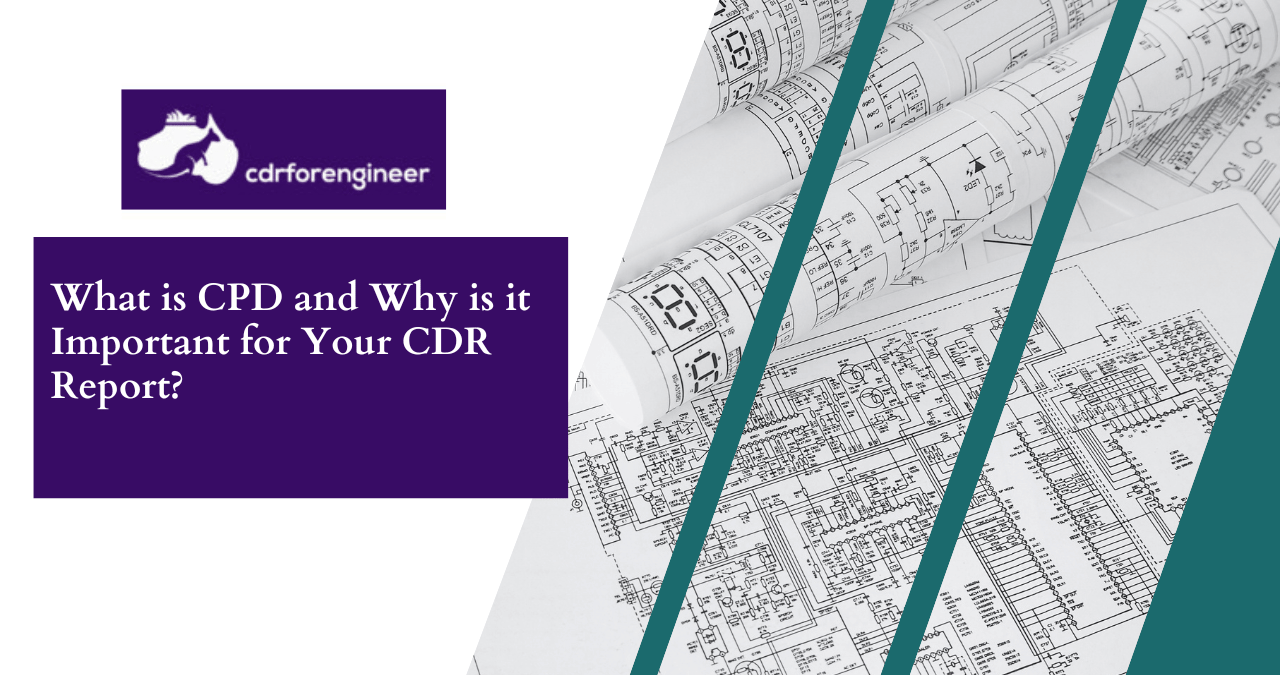Introduction
As an engineer, you might have heard about CPD or Continuous Professional Development. In this article, we will discuss what CPD is and why it is important for your CDR report.
What is CPD?
Definition of CPD
CPD or Continuous Professional Development is the process of developing and enhancing the skills, knowledge, and competencies of a professional throughout their career.
Types of CPD Activities
CPD activities can be categorized into three types:
- Structured learning: attending courses, workshops, and conferences
- Unstructured learning: reading technical journals, participating in webinars, and mentoring
- Work-based learning: on-the-job training, attending meetings, and working on projects
Benefits of CPD
The benefits of CPD are numerous and include:
- Improved knowledge and skills
- Enhanced career prospects
- Increased confidence and self-esteem
- Improved job performance and productivity
- Greater job satisfaction
- Maintaining professional registration and licenses
Why is CPD Important for Your CDR Report?
What is a CDR Report?
A Competency Demonstration Report (CDR) is a document that engineers who are not accredited by an Australian Institution of Engineers (IEAust) must submit to Engineers Australia (EA) to get their skills and qualifications assessed.
A Competency Demonstration Report (CDR) is a document that engineers who are not accredited by an Australian Institution of Engineers (IEAust) must submit to Engineers Australia (EA) to get their skills and qualifications assessed.
Importance of CPD in CDR Report
CPD is an essential component of your CDR report as it demonstrates your commitment to maintaining and improving your professional development. It also shows that you have the necessary skills and knowledge to work as an engineer in Australia. The EA assessors look for evidence of CPD in your CDR report, and it can significantly impact the success of your assessment.
How to Include CPD in Your CDR Report
To include CPD in your CDR report, you need to provide evidence of your professional development activities. This includes details of CPD activity, the date, the duration, and the provider. You also need to describe how the activity has enhanced your skills and knowledge and how it has impacted your professional practice.
Conclusion
CPD is an essential part of an engineer’s professional development and is crucial for a successful CDR report. It demonstrates your commitment to improving your skills and knowledge, which is essential in today’s fast-paced and ever-changing engineering industry.
FAQs
- What is the minimum CPD requirement for Engineers Australia?
- Engineers Australia requires a minimum of 150 hours of CPD over three years for engineers.
- Can I include non-technical CPD activities in my CDR report?
- Yes, you can include non-technical CPD activities such as leadership and management courses.
- Is it necessary to provide evidence of CPD for my CDR report?
- Yes, providing evidence of your CPD activities is essential to demonstrate your commitment to professional development and enhance your chances of a successful assessment.
- Can I include CPD activities that I did outside Australia in my CDR report?
- Yes, you can include CPD activities that you did outside Australia, but you need to provide evidence of the activity’s relevance to the Australian engineering industry.
- How can I ensure that my CPD activities meet the EA requirements?
- You can ensure that your CPD activities meet the EA requirements by checking the CPD policy and guidelines on the Engineers Australia website and choosing activities that align with your area of engineering expertise.
CPD is an essential part of an engineer’s professional development and is crucial for a successful CDR report. It demonstrates your commitment to improving your skills and knowledge, which is essential in today’s fast-paced and ever-changing engineering industry.
It is an essential part of an engineer’s professional development and is crucial for a successful CDR report. This demonstrates your commitment to improving your skills and knowledge, which is essential in today’s fast-paced and ever-changing engineering industry.






